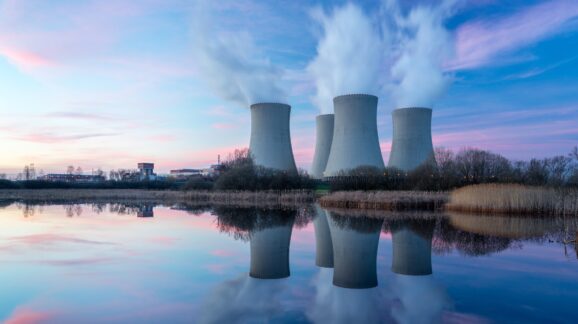America should emulate South Korea on nuclear energy

Photo Credit: Getty
A South Korean company, Korea Hydro and Nuclear Power, just received a $17.3 billion dollar contract to construct two new nuclear power plants for the Czech Republic. The company won the bid for the government contract over France’s EDF, which is the government-owned electric company that operates France’s nuclear fleet.
This deal, and the large dollar figure attached to it, is a prime example of the sort of economic gain that can come from building nuclear power plants across borders. Until very recently, it was nearly impossible for American companies to take advantage of these possibilities in most markets. Previously, US nuclear technology could only be exported to countries where “123 Agreements” under the Atomic Energy Act were present. The US has 24 of these agreements that currently cover 48 countries. The majority of these are those that have their own nuclear plants and technology. The countries that are most likely to want to accept bids from foreign countries for their civilian nuclear power are the ones that don’t have these agreements.
No formal pathway existed to permit US companies to export nuclear technology to countries outside this list. With the signing of the ADVANCE Act as part of the Fire Grants and Safety Act last month, this has finally changed.
The ADVANCE Act, along with its provisions to streamline the regulation of advanced reactor designs, takes important steps to make it easier for US nuclear technology to be exported. The law allows for the Nuclear Regulatory Commission (NRC) to approve export licenses for nuclear material, nuclear reactors, and other components. It establishes a branch within the agency to manage import and export activities. The NRC will notify Congress of any approved licenses.
This is an important step, as the US has long lagged behind both its allies and enemies on exporting nuclear power technology. These exports are both an economic vehicle, as the projects generally involve large sums of money, as well as a diplomatic tool in many cases.
Energy and its reliable provision are an incredibly important matter, especially in developing nations. As such, the provision of this power can be an incredibly binding tie between nations. It can be used to establish friendly relations amongst countries. Exporting nuclear technology (especially while maintaining control of the reactors themselves) can also be used in less friendly ways by authoritarian nations to wield influence over smaller countries. The more willing the world’s democracies are to partner with small or developing nations on their nuclear projects, the less likely they are to turn to China or Russia for help (and the control that inevitably comes with it).
US companies now have more freedom to play a role in bidding for these projects. That’s good for the US economy, good for the countries that will now have another bidder on their projects, and good because it will help to moderate the influence of other mal-intentioned nations in the nuclear space.
A version of this article first appeared on Independent Women’s Forum.